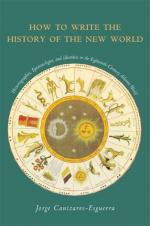|
This section contains 956 words (approx. 4 pages at 300 words per page) |

|
William James's observation that "when … we give up the doctrine of objective certitude, we do not thereby give up the quest or hope of truth itself" (1956, p. 17) succinctly expresses one important epistemological theme of traditional pragmatism: accommodation of a thoroughgoing fallibilism with a modest optimism about the possibility of successful truth seeking. Also characteristic of that tradition is its naturalism, its acknowledgment of the biological, and the social as well as the logical elements in the theory of knowledge, and its respect for science as, in Charles Peirce's words, "the epitome of man's intellectual development" (Collected Papers, 7.49). Since 1968 these ideas have been variously worked out by some who are fully aware of their roots in pragmatism and have also entered the thinking of many who are not. More surprising, some self-styled neopragmatists defend epistemological positions (or antiepistemological positions) quite unlike these classically pragmatist themes.
Both fallibilism...
|
This section contains 956 words (approx. 4 pages at 300 words per page) |

|


